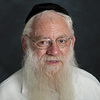Now although he has met and learned by rote to translate three of these words, he has never met "v'hashomayim." He does not, however, need to be the world's greatest genius to figure out its translation. He might use a process of elimination, or he might pay attention to the relative lengths of the two words which contain "shomayim." It doesn't matter, so long as he finds the answer for himself.
We spend much time teaching children the rules of basic dikduk and the structure Of the Hebrew language. We present this to them for memorization. Why not allow them to discover this information for themselves? Why not present them with a number of words which they have learned to translate by rote and ask them to find the Hebrew equivalent of some English translation? Thus we might ask them,
"Given the following words and their translations, which letters in Hebrew mean 'my' and which mean 'your'?"
my house ----- baysee
your house ----- bayscha
my field -----Sadee
your field -----Sadcha
my brother -----achee
your brother ----achicha
When it comes to translating p'sukim, we often mistakenly assume that if a child can translate a pasuk he also understands it. We sometimes test this by asking the child to tell us what the pasuk is saying in "his own words." What generally follows is an awkward paraphrase of the pasuk which so closely parallels the translation that we are left unsure as to what the child really understands and what he is merely miming. Worse still, the child is left unsure and unaided by our questioning. More precise questions requiring less verbalization and more thinking on the child's part would serve us both better. Thus, for a simple example, take the following pasuk:
Vayomer Elokim yehi ohr va'yehi ohr. After the child has learned to translate this by rote, why not ask him simply, "Which words in this pasuk did Hashem say? Which words tell us what happened after
Hashem spoke?"
We could get a bit more complex, and ask, "If Hashem only said, 'yehi ohr,' who said, 'Vayomer Elokim' and 'vayehi ohr'? "
Or, we might take the pasuk in Parshas Noach; Tzohar taase lateyuah v'el ama techalena milemala upesach hateva betzida tasim tachtiyim
We spend much time teaching children the rules of basic dikduk and the structure Of the Hebrew language. We present this to them for memorization. Why not allow them to discover this information for themselves? Why not present them with a number of words which they have learned to translate by rote and ask them to find the Hebrew equivalent of some English translation? Thus we might ask them,
"Given the following words and their translations, which letters in Hebrew mean 'my' and which mean 'your'?"
my house ----- baysee
your house ----- bayscha
my field -----Sadee
your field -----Sadcha
my brother -----achee
your brother ----achicha
When it comes to translating p'sukim, we often mistakenly assume that if a child can translate a pasuk he also understands it. We sometimes test this by asking the child to tell us what the pasuk is saying in "his own words." What generally follows is an awkward paraphrase of the pasuk which so closely parallels the translation that we are left unsure as to what the child really understands and what he is merely miming. Worse still, the child is left unsure and unaided by our questioning. More precise questions requiring less verbalization and more thinking on the child's part would serve us both better. Thus, for a simple example, take the following pasuk:
Vayomer Elokim yehi ohr va'yehi ohr. After the child has learned to translate this by rote, why not ask him simply, "Which words in this pasuk did Hashem say? Which words tell us what happened after
Hashem spoke?"
We could get a bit more complex, and ask, "If Hashem only said, 'yehi ohr,' who said, 'Vayomer Elokim' and 'vayehi ohr'? "
Or, we might take the pasuk in Parshas Noach; Tzohar taase lateyuah v'el ama techalena milemala upesach hateva betzida tasim tachtiyim
Teaching Thinking Skills in the Judaic Studies Curriculum / 109

